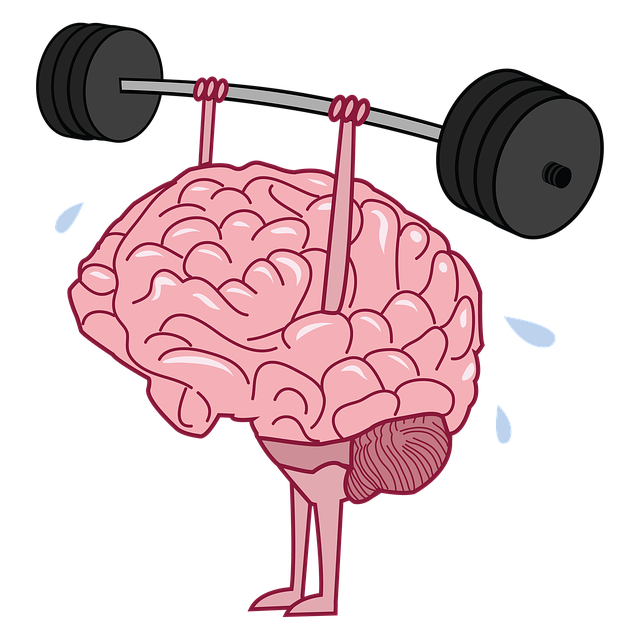Positive thinking exercises are a powerful tool in mental health therapy, offering a proactive approach to combat depression. This article delves into the transformative power of positive thinking, guiding adults struggling with depression. We explore effective strategies to identify and challenge negative thought patterns, providing a step-by-step framework for implementation. Learn practical techniques to enhance well-being, overcome challenges, and cultivate lasting positivity, even in the face of relapsing negative thoughts.
- Understanding Positive Thinking and its Impact on Mental Health
- Identifying Negative Thought Patterns: A Step-by-Step Guide
- Implementing Effective Positive Thinking Exercises
- Sustaining Positivity: Overcoming Challenges and Relapsing into Negative Thoughts
Understanding Positive Thinking and its Impact on Mental Health

Positive thinking is a powerful tool that can significantly influence one’s mental health and overall well-being. It involves consciously focusing on optimistic thoughts, reframing negative experiences, and cultivating gratitude. This simple yet profound practice has been recognized as an effective therapy for adults dealing with depression and anxiety relief. By shifting one’s mindset, positive thinking can help individuals break free from cycles of negativity and burnout prevention.
Incorporating positive thinking into daily routines can lead to substantial improvements in mental wellness coaching programs development. Research suggests that a consistent practice may enhance resilience, improve mood, and promote healthier coping mechanisms. It encourages individuals to challenge negative thought patterns, fostering a more adaptive and optimistic outlook on life. This simple exercise holds the potential to revolutionize one’s mental health journey, offering an accessible and powerful resource for those seeking better emotional well-being.
Identifying Negative Thought Patterns: A Step-by-Step Guide

Identifying negative thought patterns is a crucial step in therapy for adults dealing with depression. Start by becoming aware of your thoughts—especially during moments of distress or when feelings of sadness, anxiety, or hopelessness arise. Pay attention to recurring themes and the frequency of negative self-talk. This could include statements like “I’m not good enough” or “Everything is going wrong.” Keep a journal to track these instances, noting the triggers and subsequent emotions.
Next, examine the evidence supporting or refuting these thoughts. Are they based on facts or just perceptions? For instance, if you think, “My work is always terrible,” reflect on past successes or positive feedback received. Challenging negative thought patterns involves cultivating compassion towards yourself, a practice that boosts confidence and can be an effective burnout prevention strategy for healthcare providers. This process empowers individuals to replace unhelpful thoughts with more realistic and positive perspectives.
Implementing Effective Positive Thinking Exercises

Implementing effective positive thinking exercises requires a structured approach tailored to individual needs. Therapy for adults with depression often incorporates techniques like mindfulness, gratitude practices, and cognitive reframing. These exercises aim to challenge negative thought patterns and promote healthier perspectives. Starting small is beneficial; daily practice of just 10-15 minutes can make a significant difference over time.
Incorporating positive thinking into one’s routine involves creating a consistent self-care regimen. Emotional intelligence plays a crucial role in this process, helping individuals recognize and manage their emotions effectively. Risk management planning for mental health professionals can further enhance these practices by providing tools to support clients in building resilience and maintaining mental well-being. Regular reflection and adjusting the exercises based on individual progress ensure optimal results.
Sustaining Positivity: Overcoming Challenges and Relapsing into Negative Thoughts

Maintaining a positive mindset is an ongoing practice, especially when navigating life’s challenges. While initial progress in adopting positive thinking exercises can be encouraging, individuals often face setbacks and relapse into negative thought patterns. This is particularly relevant for adults struggling with depression, where therapy plays a pivotal role in building mental wellness.
Overcoming challenges involves recognizing that setbacks are normal and developing strategies to manage them effectively. Crisis intervention guidance can empower individuals to navigate difficult emotions and situations, fostering inner strength development. Through consistent practice and support from professionals, adults dealing with depression can enhance their resilience, making it easier to sustain positivity even during tough times.
Positive thinking exercises offer a powerful tool for adults dealing with depression, providing an effective therapy approach. By understanding the impact of our thoughts on mental health and learning to identify negative patterns, individuals can begin to transform their mindset. The step-by-step guide provided offers practical strategies for implementing positive thinking, helping to foster a more optimistic outlook. While challenges may arise, as discussed in the article, sustainable positivity is achievable through consistent practice. Embrace these exercises as a journey towards better mental well-being and explore the potential for a happier, healthier life.












